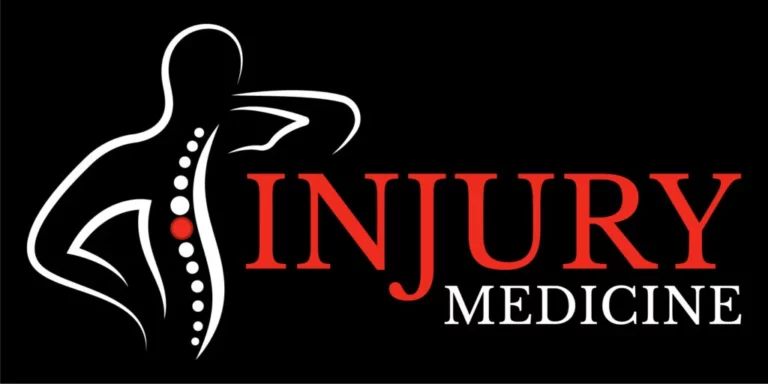Medical Definition of Whiplash
Whiplash is a medical term used to describe a neck injury caused by a sudden and forceful back-and-forth motion of the head and neck. This motion, which resembles the cracking of a whip, can occur in various situations, such as motor vehicle accidents, sporting activities, and falls. Whiplash injuries primarily affect the soft tissues of the neck, including muscles, ligaments, and tendons. While whiplash is typically associated with rear-end car collisions, it can also result from other types of accidents and trauma.
Common Symptoms of Whiplash
Whiplash injuries can vary in severity, but common symptoms and signs include:
Neck Pain: The most common symptom of whiplash is neck pain, which can range from mild to severe and may be localized or radiate to the shoulders and upper back.
Stiffness: Individuals with whiplash often experience stiffness and reduced range of motion in the neck, making it difficult to turn or tilt the head.
Headaches: Headaches, particularly tension-type headaches, are a common symptom following a whiplash injury.
Fatigue: Whiplash injuries can cause fatigue and sleep disturbances, often due to the pain and discomfort associated with the injury.
Dizziness: Some individuals may experience dizziness or vertigo as a result of whiplash.
Cognitive Symptoms: Concentration difficulties, memory problems, and irritability are cognitive symptoms that can occur with whiplash injuries.
Importance of Whiplash in Medicine
Whiplash injuries are medically significant for several reasons:
Soft Tissue Damage: Whiplash primarily affects the soft tissues of the neck, including muscles, ligaments, and tendons. These injuries can be painful and may require medical treatment and rehabilitation.
Delayed Onset: Symptoms of whiplash may not appear immediately after an accident but can develop hours or even days later. This delayed onset underscores the importance of seeking medical evaluation following an accident.
Recovery and Rehabilitation: Many individuals with whiplash benefit from physical therapy and rehabilitation to alleviate symptoms and improve neck function.
Legal Implications: Whiplash injuries often play a role in legal cases involving personal injury claims, insurance disputes, and compensation for medical expenses and pain and suffering.
Legal Implications of Whiplash
Whiplash injuries can have legal implications in various contexts, including personal injury claims, insurance disputes, workers’ compensation, and cases involving negligence or motor vehicle accidents. Here are some key legal considerations:
Personal Injury Claims: Individuals who sustain whiplash injuries due to accidents or incidents caused by another party’s negligence may pursue personal injury claims to seek compensation for medical expenses, pain and suffering, lost wages, and rehabilitation costs.
Insurance Claims: Whiplash injuries are often central to insurance claims, especially in motor vehicle accidents. Insurance companies may assess the extent of injuries and the validity of claims related to whiplash.
Workers’ Compensation: Employees who suffer work-related whiplash injuries may file workers’ compensation claims to receive benefits, including medical coverage, disability payments, and vocational rehabilitation.
Negligence Claims: Whiplash injuries may be part of broader negligence claims when an individual or entity is alleged to have caused or contributed to the accident or incident that led to the injury.
Legal Considerations for Whiplash Cases
Several legal considerations apply to cases involving whiplash injuries:
Medical Documentation: Thorough and accurate medical documentation, including diagnostic tests, treatment plans, and progress reports, is crucial for personal injury claims, insurance disputes, workers’ compensation cases, and legal proceedings related to whiplash.
Expert Testimony: Medical experts, including orthopedic specialists, physical therapists, and neurologists, may provide expert testimony to assess the individual’s condition, functional limitations, and the standard of care.
Causation: Establishing a causal link between the alleged negligence or injury and the whiplash injury is essential in legal cases. This may involve expert medical opinions and evidence.
Rehabilitation: The importance of rehabilitation and therapy in the recovery process may be a key component of legal cases involving whiplash, particularly in disputes over the necessity and adequacy of treatment.
Insurance Regulations: Understanding and navigating insurance regulations and procedures is essential when dealing with insurance claims related to whiplash injuries.
Conclusion
Whiplash is a medical condition characterized by neck injuries resulting from the rapid and forceful back-and-forth motion of the head and neck. In legal contexts, whiplash injuries can have implications in personal injury claims, insurance disputes, workers’ compensation, and cases involving negligence or motor vehicle accidents. Legal considerations in whiplash cases include medical documentation, expert testimony, causation, and compliance with insurance regulations. Adequate legal and medical support is essential for individuals with whiplash injuries to navigate potential legal challenges successfully and access the care and benefits they need.

